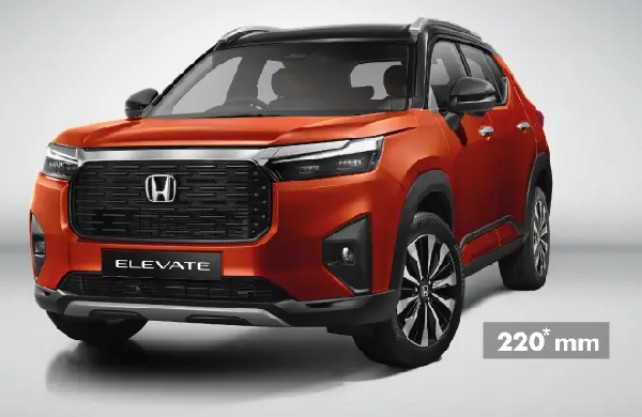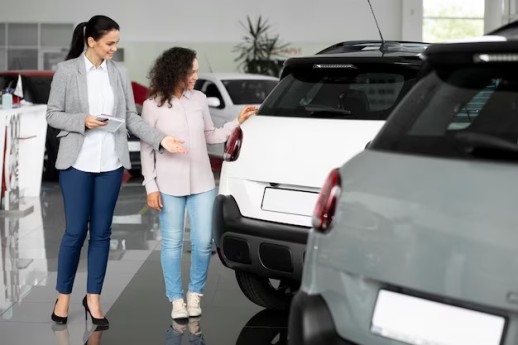
Since its entry into the Indian market in 1998 with the popular sedan, City, Honda has garnered immense love and support from the people. Over the years, Honda has captured a significant share of the sedan market, leaving many wondering what sets their cars apart and why they have gained such a loyal fan base in the country. Let's explore four unique features that make Honda cars stand out from the competition.
VTEC Engines: Power Meets Fuel Efficiency
One of the standout features of Honda cars is their VTEC (Variable Timing & Lift Electronic Control) engines. Introduced in 1989, the VTEC system caters to every performance requirement while ensuring excellent fuel efficiency. Honda has continuously updated and refined these engines, allowing the car to respond effortlessly to the driver's commands and deliver outstanding driving dynamics.
In a country like India, where fuel prices are a growing concern, Honda's commitment to fuel efficiency is particularly significant. By combining power and efficiency, Honda offers a driving experience that is both exhilarating and cost-effective. Moreover, Honda has not limited its innovation to petrol engines alone. In 2013, they introduced the i-DTEC diesel engine, which was ahead of its time. Known for its lightweight design, this diesel engine delivers an optimal balance of power and fuel efficiency in a refined manner. Indian Honda models equipped with i-VTEC engines prioritize fuel efficiency while also injecting a sporty element into the driving experience with their two camshaft profiles.
Impeccable Reliability: Cars Built to Last
Honda cars are renowned for their exceptional reliability. It's not uncommon to see early 1st and 2nd generation City models still running smoothly on Indian roads. In fact, many people have passed down their Honda Citys to the younger generation as their first cars.
Honda places quality as its utmost concern, ensuring that their vehicles have an extended lifespan compared to their competitors. While other cars may start to show signs of wear and tear, Honda cars maintain their reliability over the years. This commitment to customer satisfaction and dependability has built a massive audience for Honda in India.
Features & Safety: Japanese Tech at an Affordable Price
When it comes to cutting-edge technology, two countries often come to mind: Japan and Germany. While German technology is known for its premium pricing, Japanese technology offers affordability and reliability. Honda embraces this philosophy and ensures that its cars are equipped with advanced features to meet the demands of today's hyperactive lifestyle.
Take, for instance, the latest Honda City 2020. It boasts an advanced Honda Connect platform designed to seamlessly connect the customer, car, family, and advanced technology. The platform offers instant communication and numerous features that can be accessed and enabled through Google Assistant-enabled Android devices, Google Nest speakers, and more. It even supports iOS devices, making it inclusive for a wide range of users.
Safety is a crucial aspect that cannot be overlooked, and Honda takes it seriously. Most Honda cars have achieved 4-5-star ratings in the NCAP tests, providing reassurance to Indian buyers who are increasingly prioritizing safety when purchasing a vehicle. Honda's dedication to safety is evident in their meticulous efforts to ensure that every car they produce is equipped with comprehensive safety features.
Potential & Resale Value: Unlocking Performance and Long-Term Value
Honda cars offer immense potential for customization and modification. Many enthusiasts choose to modify their Honda Citys or Honda Civics, enhancing both the aesthetics and performance of the vehicles. These cars become even more appealing after a few tweaks, making them highly sought after in the aftermarket scene.
In addition to customization potential, Honda cars have an excellent resale value. Indian buyers often consider fuel efficiency and resale value when making a car purchase, and Honda fulfills both these criteria. Well-maintained Honda cars can retain up to 60-70% of their original value, even in unfavorable market conditions, making them a wise investment. Even during challenging times, these vehicles are unlikely to depreciate below 50% of their initial value due to their reputation for reliability.
In conclusion, Honda cars have made a mark in the Indian market with their unique features and characteristics. From their VTEC engines that combine power and fuel efficiency to their unwavering reliability, Honda has established itself as a brand that delivers on its promises. With a focus on advanced features, safety, and long-term value, Honda continues to captivate Indian car buyers and maintain its strong position in the market.
Also read: 7 Compelling Reasons to Choose Honda Cars


